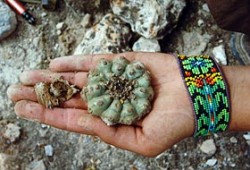Street Names for Hallucinogens
Anyone who’s used hallucinogens for any length of time has likely tuned into the jargon used among frequent hallucinogen users. Street names for hallucinogens permit regular users a certain degree of discretion and cover from listening ears. While many of these street names may sound colorful and playful, the effects of these drugs can be dangerous, and even deadly.
Types of Hallucinogens
Street names for hallucinogens reflect the wide range of effects these drugs produce. Drug effects tend to vary according to the type of hallucinogen used. Street names for hallucinogens may also reflect the form of the drug in terms of liquid, versus powder versus pills.
Hallucinogen drugs have no accepted medical uses, making for an illegal class of drugs overall. Hallucinogens exist as raw plant materials as well as synthetically made substances.
In general, hallucinogens drugs fall into three main categories:
- Deliriants
- Psychedelics
- Dissociatives
Each class of drugs produces its own distinctive effects, many of which are depicted by street names for hallucinogens.
Psychedelics
Psychedelics alter a person’s sensory perceptions, producing a deluge of sounds, smells, textures and colors in his or her mind. Normally, the brain filters out extraneous details from the surrounding environment, which enables a person to interact with his or her surroundings. Psychedelics block these filters, exposing users to all aspects of their surrounding environment.

Street names for peyote include nubs and half moon.
The most commonly used psychedelic hallucinogens include:
- Peyote
- Mescaline
- LSD
Street names for peyote include:
- Nubs
- Half Moon
- Hikuli
Street names for mescaline include:
- Mesc
- Cactus Head
- Buttons
Street names for hallucinogens involving LSD include:
- Boomers
- Acid
- Cid
- Dots
Dissociatives
While psychedelics expand a person’s sensory awareness, dissociative drugs rather block sensory perceptions and allow the brain to create its own sensory experiences. Commonly used dissociative drugs include:
- Ketamine
- PCP
- MDMA
Street names for ketamine include:
- Super C
- Special K
- Green
Street names for PCP include:
- Mushrooms
- Moon
- Musk
Street names for hallucinogens involving MDMA include:
- Ecstasy
- Molly
- Love Trip
Deliriants
Unlike psychedelics and dissociative drugs, deliriants produce altogether false perceptions of reality that have no basis in a person’s surrounding environment or the brain’s internal environment, according to the U. S. Drug Enforcement Administration. In effect, deliriants bring on a state of overall confusion leaving users in a stupor-like state.
Deliriant-based hallucinogen drugs types include:
- Datura
- Deadly Nightshade
- Henbane
Street names for Datura include:
- Thornapple
- Stinkweed
- Devil’s Snare
Street names for Deadly Nightshade include:
- Devil’s Berries
- Death Cherries
- Beautiful Death
Street names for hallucinogens involving Henbane include:
- Devil’s Eye
- Fetid Nightshade
- Hog
Considerations
Street names for hallucinogens usually describe the types of experiences these drugs produce. In most cases, these experiences leave users in helpless and vulnerable states. For this reason, there’s a street name for hallucinogens that refers to the “lookout” or caretaker, which is someone who ensures the safety of others while they “trip.” This person’s street name is “ground control.” This designation speaks to the dangers surrounding the use of these drugs.
- Related Articles
 List of Hallucinogens -
Hallucinogens are known for their ability to change individuals' perspective due to their psychoactive effects.
List of Hallucinogens -
Hallucinogens are known for their ability to change individuals' perspective due to their psychoactive effects.  Is Ecstasy a Hallucinogen (And Will I Need Treatment If I Abuse It)? -
Ecstasy, also knows as MDMA or molly, has a variety of physical and psychological effects that have the potential to cause addiction.
Is Ecstasy a Hallucinogen (And Will I Need Treatment If I Abuse It)? -
Ecstasy, also knows as MDMA or molly, has a variety of physical and psychological effects that have the potential to cause addiction.  What Are Some Examples of Hallucinogenic Drugs (And Why Should I Avoid Them)? -
The effects of hallucinogenic drugs range from mild to severe, making the abuse of these substances a risky behavior.
What Are Some Examples of Hallucinogenic Drugs (And Why Should I Avoid Them)? -
The effects of hallucinogenic drugs range from mild to severe, making the abuse of these substances a risky behavior.  Things that Cause Hallucinations that you Need to Worry About Taking -
Some hallucinogens can cause much more than just a psychological addiction. Learn about them here.
Things that Cause Hallucinations that you Need to Worry About Taking -
Some hallucinogens can cause much more than just a psychological addiction. Learn about them here.  What are Synthetic Drugs and Why are they so Dangerous? -
Synthetic drugs are man-made chemical combinations that mimic the effects of other controlled substances such as marijuana or cocaine.
What are Synthetic Drugs and Why are they so Dangerous? -
Synthetic drugs are man-made chemical combinations that mimic the effects of other controlled substances such as marijuana or cocaine.